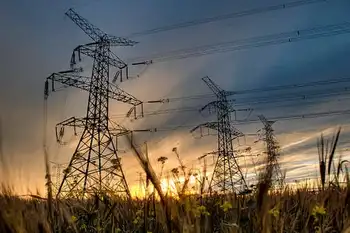The downside of MexicoÂ’s wind power boom
By Reuters
CSA Z462 Arc Flash Training - Electrical Safety Essentials
Our customized live online or in‑person group training can be delivered to your staff at your location.

- Live Online
- 6 hours Instructor-led
- Group Training Available
Unlike other petroleum-producing countries in Latin America, Mexico's energy industry has always been state-owned. In the past, this arrangement allowed the country to have more control of the development of its industry. But high foreign debt has kept Mexico from investing in expanding its petroleum infrastructure, supplies — and revenues — are now dwindling.
So in an effort to capitalize on green economic opportunities, President Felipe Calderón has made a big push to install wind power. But as the USA Today reported, wind power may not be as cool as supporters tout it to be.
"Calderón has pledged to have the region producing at least 2,500 megawatts by the time his term ends in 2012. That's enough for as many as 700,000 average U.S. homes.
"'With nothing but wind power, without burning a drop of petroleum, we are generating electricity so people can live better, so companies can produce more and generate more jobs, and so that people here can benefit through rent or association with these projects,' Calderón said during a recent visit to the isthmus."
The newspaper reported that land owners in the Tehuantepec isthmus were paid very low rent prices for their land, and the rows of towering windmills cut irrigation lines to farmers and covered crops with dust. In fact, according to the article, one community of Huavé indigenous people sued to keep large foreign companies off their land. Quoting a lawyer from the Tepeyac Human Rights Center who worked on the case, Claudia Vera said, "It's clean energy but dirty business."
But Mexico isn't the only place you'll find local opposition to an explosion on wind turbines.
In Roberts County, Texas, the site of T. Boone Pickens' future wind farm, some landowners think his land grab is greedy. With his two private utility companies Mesa Water and Mesa Power, the 80-year-old former oil tycoon has eminent domain rights to build a water pipeline and electrical transmission lines from this sparsely populated West Texas region to the dense hub of the Dallas-Fort Worth Area.
Some readers of the Wichita Falls, Texas Times Record News complain about these plans, and a website Texans for Public Justice details the numbers associated with the proposed municipal utility project. However, according the Roberts County Fresh Water Supply District website, plans to develop the right-of-way project have been temporarily suspended.
Many people champion the benefits of the job potential associated with clean energy; but perhaps growth should be slower and more sustained. And maybe local residents would be more supportive of the rapid growth of wind energy; if they felt business people and government officials were completely transparent about the process.











